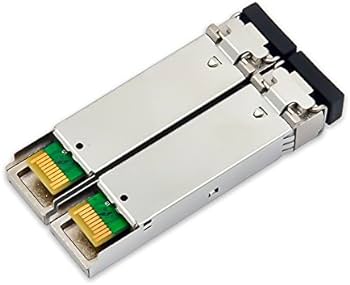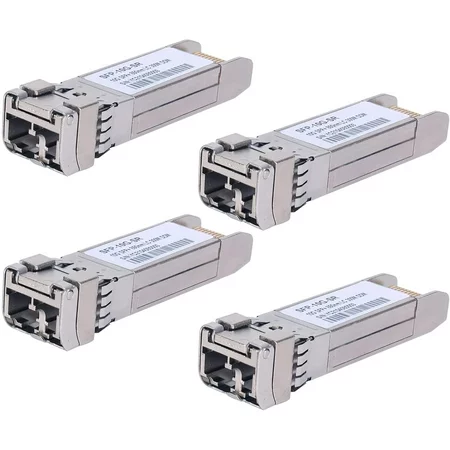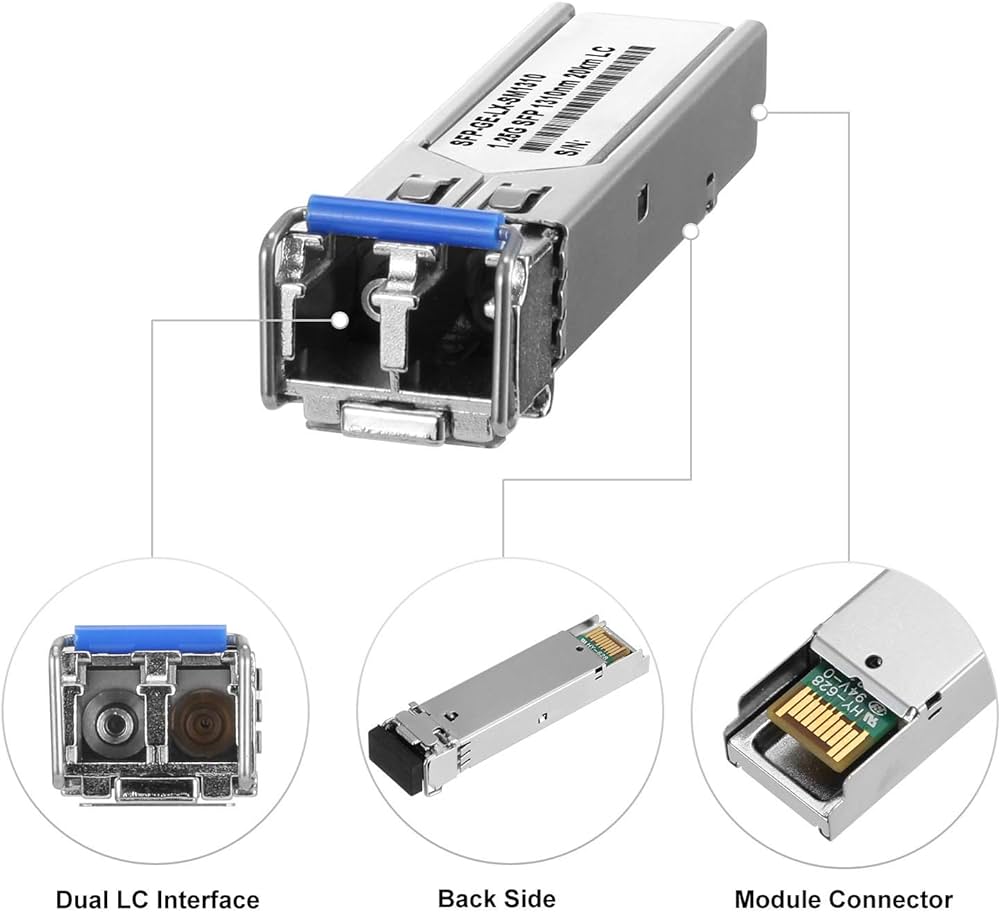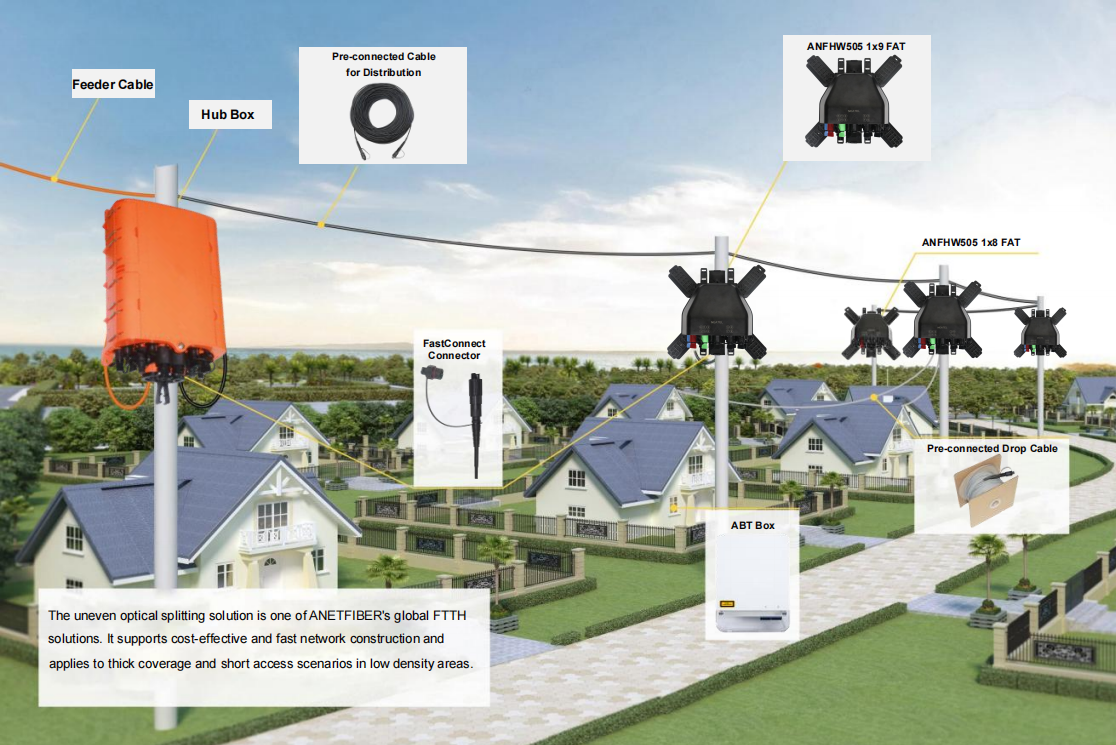Understanding SFP, Optical Modules, and Gigabit Transceivers for High-Speed Data Transmission

High-Speed Data Transmission
The Role of SFP Technology
In the realm of high-speed data transmission, SFP technology stands as a vital component. Small Form-Factor Pluggable (SFP) modules are instrumental in facilitating the seamless transfer of large volumes of data across networks. These compact and versatile optical transceivers play a crucial role in ensuring efficient and reliable data transmission. By utilizing fiber optic transceivers, SFP technology enables networks to handle the demands of high-speed data transfer with ease.
SFP Technology
Overview of SFP Technology
SFP technology is characterized by its compact design and versatile functionality, making it a popular choice for high-speed data transmission. These small form-factor pluggable modules are designed to be hot-swappable, allowing for easy installation and replacement without disrupting network operations. The role of SFP in high-speed data transmission is paramount, as it provides the necessary interface for transmitting and receiving data over fiber optic cables. The modular nature of SFP technology also allows for flexibility in network configurations, enabling seamless integration with various networking equipment.
Advantages of SFP Technology
The advantages of SFP technology extend beyond its compact size and hot-swappable design. One key advantage is the flexibility it offers in network scalability, allowing for easy expansion or modification of network infrastructure as needed. Additionally, SFP modules are known for their cost-effectiveness in network connectivity, providing a reliable and efficient solution for high-speed data transmission without the need for extensive hardware upgrades.
Optical Modules & Gigabit Transceivers
Understanding Optical Modules
When it comes to high-speed data transmission, optical modules play a crucial role in ensuring the seamless transfer of information across networks. These modules serve as the interface for converting electrical signals into optical signals for transmission over fiber optic cables. One of the key advantages of optical modules is their compatibility and interchangeability, allowing for flexibility in network configurations and the ability to support various types of optical transceivers. This interchangeability enables network operators to adapt their infrastructure to meet evolving data transmission needs without requiring extensive hardware replacements.

Gigabit Transceivers for Data Transmission
Gigabit transceivers are instrumental in facilitating high-speed data transmission within network connectivity. These transceivers significantly enhance the efficiency and reliability of data transfer, supporting the seamless reception and transmission of large volumes of data. One of the primary advantages of gigabit transceivers lies in their ability to handle high-speed data transmission with minimal latency, ensuring that critical information is delivered promptly across the network. Additionally, gigabit transceivers contribute to improved network performance by providing a stable and robust platform for high-speed data transfer, thereby meeting the demands of bandwidth-intensive applications.
Benefits of High-Speed Data Transmission
Efficiency in Data Transmission
High-speed data transmission has a profound impact on network performance, enabling fast data transfer and rapid data transmission across the network. The efficiency of high-velocity data transfer is evident in the reduced latency, ensuring that critical information reaches its destination promptly. By minimizing delays in data transmission, high-speed data transfer enhances the overall responsiveness of the network, leading to improved operational efficiency and user experience.
Enhanced Network Connectivity
The seamless integration of high-speed data transmission plays a pivotal role in supporting bandwidth-intensive applications within network connectivity. High-velocity data transfer enables networks to handle large volumes of data with ease, ensuring smooth and uninterrupted operations for resource-intensive tasks. This enhanced network connectivity not only improves the overall performance but also provides a robust foundation for accommodating future technological advancements and evolving demands in data transmission.
Fiber Optics in Network Connectivity
Utilizing Fiber Optics
Fiber optics play a pivotal role in enhancing network connectivity by offering a multitude of advantages. The utilization of fiber optics provides unparalleled speed and bandwidth, making it an ideal choice for high-speed data transmission. By leveraging the capabilities of fiber optics, networks can achieve seamless and rapid network access, ensuring efficient connectivity solutions for various applications. Additionally, the use of fiber optics in network links enables the transmission of large volumes of data over long distances without compromising on speed or reliability.
Scalability and Reliability of Fiber Optics
The scalability of fiber optics is evident in its ability to support the expansion of network infrastructure without compromising performance. As network demands grow, fiber optics provide a reliable solution for accommodating increased data traffic while maintaining consistent high-speed data transmission. The reliability of fiber optics ensures that network connectivity remains stable and robust, contributing to uninterrupted operations and seamless data transfer across the network.

Optimizing Data Transmission with SFP
Maximizing Efficiency with Small Form-Factor Pluggable Technology
In the realm of data transmission, SFP technology plays a pivotal role in optimizing efficiency. The compact design and hot-swappable nature of Small Form-Factor Pluggable modules allow for seamless integration and rapid deployment, maximizing the overall performance of high-speed data transmission. By leveraging the capabilities of SFP technology, network operators can achieve enhanced data transfer rates and improved reliability, ensuring that critical information is transmitted swiftly and consistently across the network.
See Also
Optimizing Signal Transmission with Cassette Module and PLC Splitter
Exploring Balanced and Unbalanced PLC Splitters in Telecommunication Infrastructure
Exploring the Applications of LC SC Duplex Fiber Optic Adapters
LC vs. SC Connectors: Choosing the Right Fiber Adapter for Your Network
About US
Follow Us
AnetFiber company's main products are indoor and outdoor optical fiber cables, outdoor waterproof pre-connected fiber-to-the-home products, PLC optical fiber splitters, optical fiber jumpers and pigtails, MTP®/MPO high-density big data product solutions, optical fiber field quick connectors and research and development molding, injection molding and production of optical fiber distribution boxes, optical fiber chassis cabinets, the market has expanded to the world, Europe, America, Asia, the Middle East and Latin America.
Address
Shenzhen City, Baoan District, Yanluo Street, Tangxiayong Community, Yangyong Industrial Road, Tonggangda New Energy Vehicle Park 406
Contacts
+86 199 2655 3586

